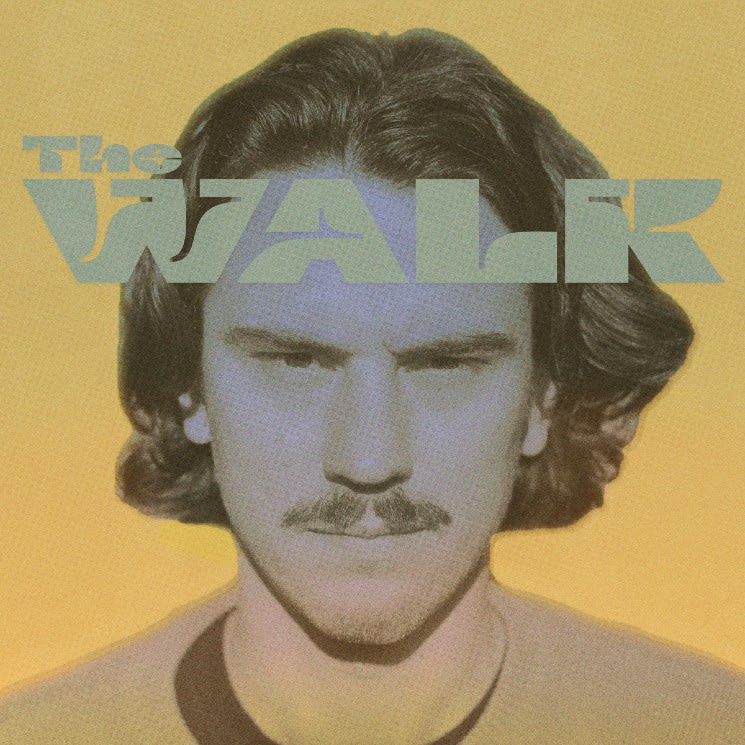Thomas Molander spent the first half of 2020 in quarantine with his brothers, but he's come crashing out from the gates of Hades with one of the most promising Montreal rock debuts in years — a fuzzy-edged four-track self-recorded Arc de Triomphe, masterfully arranged with contrapuntal spin kicks and earworms galore.
With lyrics that often sound sung into a fan, The Walk pits Molander's pinner-thin voice against itself, stacked into baroque and Babelesque doo-wops that recall a certain group of Liverpudlians from the '60s. The self-harmonies get a brotherly hand from Molanders Jake and Conner (the latter of Half Moon Run), who hum to Tom's drum and play Rhodes, pedal steel, and electric guitar.
The album's indisputable highlight is "Third Walk," a slow sizzler that starts like Chardonnay and erupts mid-song like a smuggled fistful of Roman candles — a synth alights, its minor-key squeal a harbinger of chaos to come. The soft-n-pretty key ditties disappear. the drums pick up. The bass guitar starts rumbling like a bumptious, freaky psychotic. More psychedelic madness piles up in the melody and you can picture kids in the pit gleefully swinging, pointy elbows untucked.
The album swims against most current acts in "Montreal rock": it lacks the ironic proggy-inflection you'd expect of Lydia Képinski and her ilk, the nightingale polish of Half Moon Run, or that swaggering post-punk Corridor cool. It instead plants its flag firm with ol' fusty Nilsson, Ringo, and the Kinks. A path so familiar-seeming, it's perhaps no longer actually trodden.
Either way, The Walk is an auspicious beginning to something. And it's been a minute since a band of brothers sounded this good.
(Independent)With lyrics that often sound sung into a fan, The Walk pits Molander's pinner-thin voice against itself, stacked into baroque and Babelesque doo-wops that recall a certain group of Liverpudlians from the '60s. The self-harmonies get a brotherly hand from Molanders Jake and Conner (the latter of Half Moon Run), who hum to Tom's drum and play Rhodes, pedal steel, and electric guitar.
The album's indisputable highlight is "Third Walk," a slow sizzler that starts like Chardonnay and erupts mid-song like a smuggled fistful of Roman candles — a synth alights, its minor-key squeal a harbinger of chaos to come. The soft-n-pretty key ditties disappear. the drums pick up. The bass guitar starts rumbling like a bumptious, freaky psychotic. More psychedelic madness piles up in the melody and you can picture kids in the pit gleefully swinging, pointy elbows untucked.
The album swims against most current acts in "Montreal rock": it lacks the ironic proggy-inflection you'd expect of Lydia Képinski and her ilk, the nightingale polish of Half Moon Run, or that swaggering post-punk Corridor cool. It instead plants its flag firm with ol' fusty Nilsson, Ringo, and the Kinks. A path so familiar-seeming, it's perhaps no longer actually trodden.
Either way, The Walk is an auspicious beginning to something. And it's been a minute since a band of brothers sounded this good.
